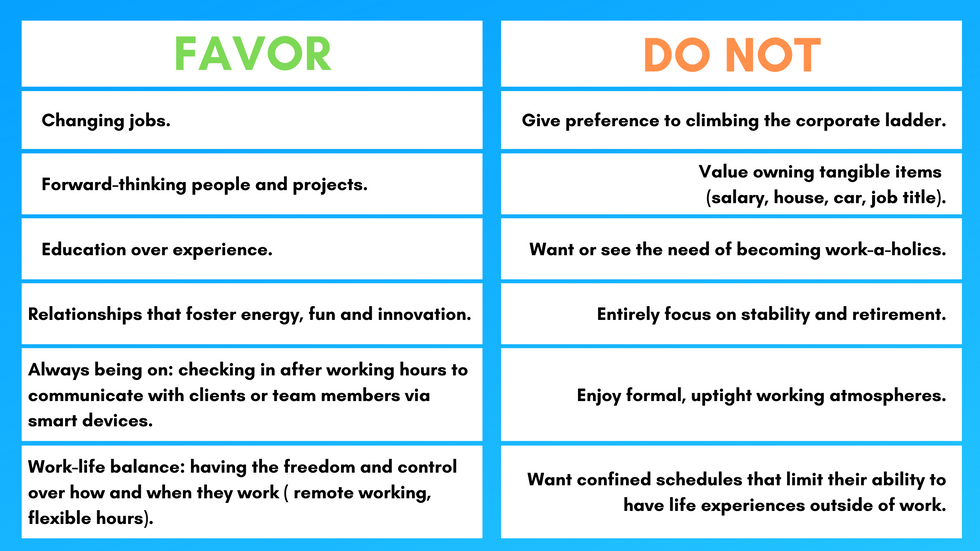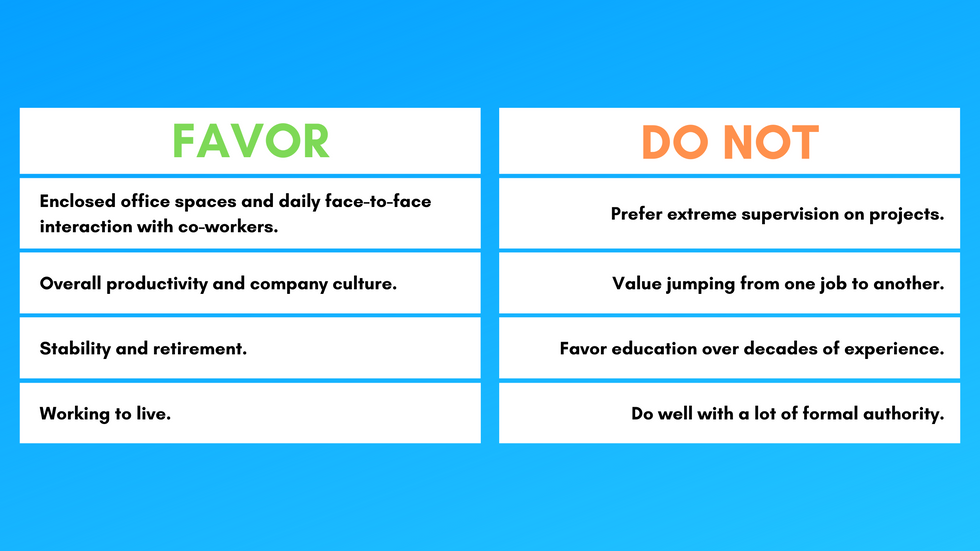The workplace is no longer confined to cubicle spaces, hauling morning commutes, and conference rooms. Now, working is shifting from a physical place to a lifestyle.
Technology has made this transition possible because we can access people, tools, and live streams globally with the click of our mouse regardless of being at an Italian coffee shop or corporate office.
The biggest shift? We've stopped believing that productive work can only be done at work.
Yet this opinion may only align well with Gen Y, also infamously known as "the millennials," a term that has been circulating in our social culture for decades now. So, what are the key differences between Gen Y and Gen X, and how does this impact your individual workplace experience?
Let's dive into the basics first...
Gen Y | Millennials | Born 1981-1996

Gen X | Born 1965-1980

Millennial Stereotypes

Bigstock
You can see the key attributes that set these two generations apart. But before you say, "Agh, millennials!" let's look at the statistics—especially important for those that stereotype millennials as lazy or entitled:
- There are 73 million millennials in America and they make up the largest segment in the workplace.
- Millennial population statistics projected that by 2025, they would comprise 75% of the global labor force.
So, Who’s Better Than The Other?

Bigstock
Each generation has its strengths and weaknesses. Therefore, an individual's core values should play a role in the types of tasks, projects, or other opportunities they receive at work, in addition to other factors like experience and skill set.
We can't stress the importance of understanding the differences between these two generations enough because it can create a more efficient, profitable, and friendly workplace.
Employees: Look for companies that honor your core values and provide a work culture that aligns with your beliefs and strengths. If you don't, chances are, you may end up being in a position that causes you mental stress, loss of professional confidence, or career depression.
Employers: Do not try to mold or force a millennial into a role more suited for Gen X or vice versa. It will most likely lead to failure and loss of time and money.
Example 1: A Gen Y employee may not do well with strict Monday-Friday schedules in office settings, especially when tight project deadlines are approaching. But they're most likely willing to work non-traditional, flexible work hours. So, if you're looking for a candidate that will go above and beyond for a company during the holidays including working weekends, Gen Y probably is the right fit.
Example 2: If you have a project where you're only able to provide minimal supervision due to lack of time or resources, choose a Gen X employee.
Go Beyond Stereotypes

Bigstock
At the end of the working day, think beyond stereotypes of any kind, especially when it comes to generational differences. Instead, try to view your colleagues as people first, rather than sources of irritation or competition.
See how you can learn from each other's differences and work in a harmonious way that honors both sides' experiences and beliefs. You may actually gain more appreciation and respect for your peers this way, and maybe even be inspired by them, too.
Need more help with your career?
Become a member to learn how to UNLEASH your true potential to get what you want from work!




